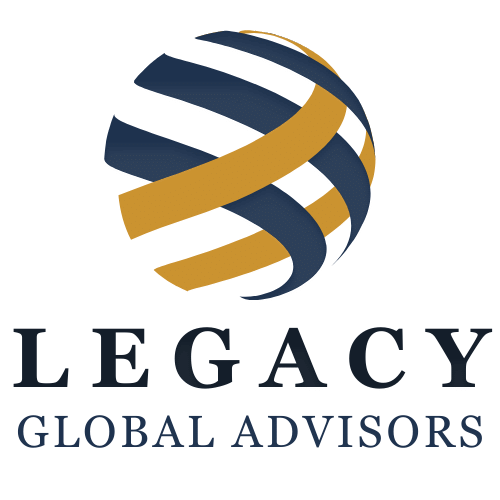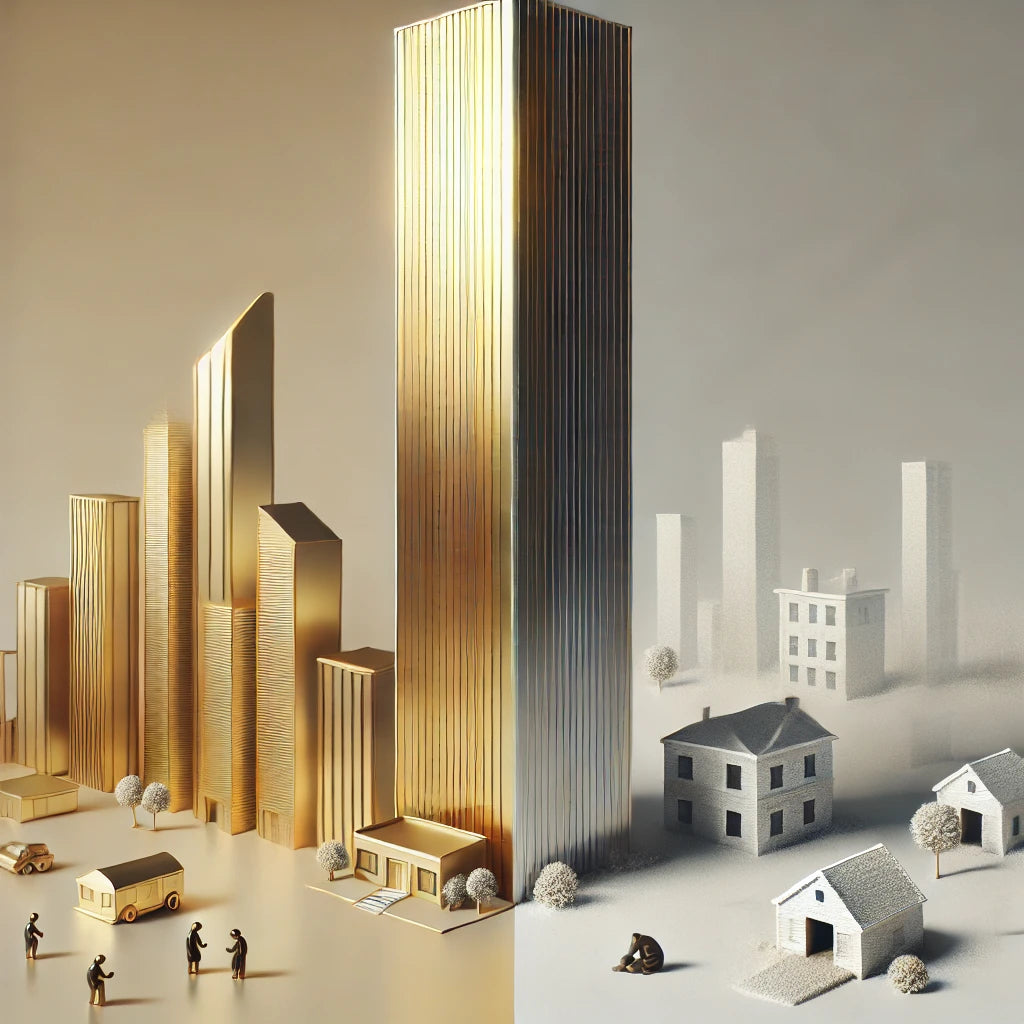We stand on the precipice of a global economic reckoning—one that forces us to ask the question: Are our economies truly functioning, or are we living in a grand illusion of prosperity? On the surface, skyscrapers continue to rise, financial markets hum with activity, and governments reassure us that growth is the answer to all. But beneath this façade lies a broken system—one that is failing us at its core.
Our economies, driven by debt, inequality, and the commodification of money itself, are not just wounded; they are on life support. For too long, we’ve accepted the idea that money can be traded, lent, and marked up with interest, as though it were a product to be bought and sold. But let’s be honest with ourselves: money, in its essence, is not a commodity. It’s a measure—a simple tool for trade. So why have we allowed it to become the very thing that shackles us?
The Broken Cycle of Wealth and Growth
At the heart of this dysfunction is inequality. We live in a world where the wealthiest few control almost all the resources, while the majority struggle to make ends meet. This is not an accident; it is the outcome of a system designed to reward those who already have. We talk of "growth," yet growth for whom? For the billionaire whose fortune grows exponentially through speculative investments? Or for the family working two jobs, trying to stay afloat while wages remain stagnant and prices rise?
Money—meant to circulate, to fuel economic activity—now sits idle in savings accounts, offshore accounts, and investment portfolios. It is hoarded, not spent, and every dollar hoarded is a dollar missing from the economy. The businesses that produce goods, the workers who provide services—they rely on this flow to survive. But that flow is drying up, and the consequences are real: factories close, unemployment rises, and the promise of prosperity fades.
Debt - The Silent Poison of Our Economies
We have allowed debt to fuel the illusion of progress. Countries, companies, and individuals borrow beyond their means, building a house of cards that grows taller with each passing year. Every loan taken out, every interest payment made, erodes the foundation of what should be a healthy economy. Governments, too, have become trapped in this cycle, borrowing to fund unsustainable spending while neglecting the investments that truly matter—education, healthcare, infrastructure.
And the interest—the constant, unrelenting interest—that is the true poison. It commoditizes money, transforming it from a medium of exchange into a vehicle for profit. This markup on money only deepens inequality, transferring wealth from the many to the few. It disconnects money from real value, replacing the honest work of production and innovation with speculation and financialization. How can we continue to accept this?
The Human Cost of a Broken System
But perhaps the greatest tragedy of all is the human cost. When people work hard yet still struggle to survive, when they cannot save for their children’s future or live without fear of falling into poverty, the system has failed. We see it in every city: the growing divide between the rich and poor, the boarded-up businesses, the endless cycle of unemployment. The same people who should be the backbone of our economies are instead left behind.
And then, we have those who do not contribute at all—those who, through no fault of their own, are reliant on government grants and welfare. They are not to blame; the system is. But this reliance is yet another drain on the economy. If people do not work, if they do not produce or spend, then they do not fuel the cycle that keeps the economy alive. Each grant paid out without corresponding value returned only erodes the system further.
Time for Change: Reimagining What We Value
It is time to ask ourselves: What is the true purpose of an economy? Is it endless growth, measured by financial markets and GDP? Or should it be something more—something that values human dignity, sustainable production, and real innovation? We must move beyond the illusion of prosperity and toward a future where wealth is not measured by how much we hoard but by how much we create, share, and uplift one another.
Imagine a world where money is not commoditized, where interest does not stifle creativity and production. Picture an economy where wealth circulates—where the success of one contributes to the success of all, not just the privileged few. In this world, governments would not rely on debt to function, but would instead invest in the long-term well-being of their citizens. Companies would not chase speculative profits but would create real value, producing goods and services that benefit society as a whole.
The Path Forward - Ending the Illusion
This may sound like a dream, but it is not impossible. We have the power to rewrite the rules of the economy, to break free from the chains of debt and inequality. The first step is acknowledging the truth: that the system as it stands is broken. Only then can we begin to fix it.
We must challenge the very foundation of modern economics, starting with the concept of interest. Money is not a product to be bought and sold; it is a measure of value, a means of exchange. By ending the commoditization of money, we can restore balance to the economy—an equilibrium where wealth is created through work, not through financial manipulation.
It is also time to rethink the role of government. Instead of being driven by short-term gains and debt-fueled spending, governments must focus on sustainable development—investing in people, infrastructure, and the planet. This is the only way to build an economy that works for everyone, not just a select few.
A New Vision for the Future
As we stand at this crossroads, we must decide: Will we continue to accept the illusion of prosperity, or will we create something better? The future of our economies—and our societies—depends on the choices we make today.
We can no longer afford to be complacent. The time has come to build a system that values human effort, fosters innovation, and ensures that wealth is shared rather than hoarded. We must break the cycle of debt and inequality, end the commoditization of money, and reclaim our economies for the people.
In doing so, we will not only repair what has been broken but also create a world where everyone has the opportunity to thrive. And that, after all, is what an economy should truly be about.

